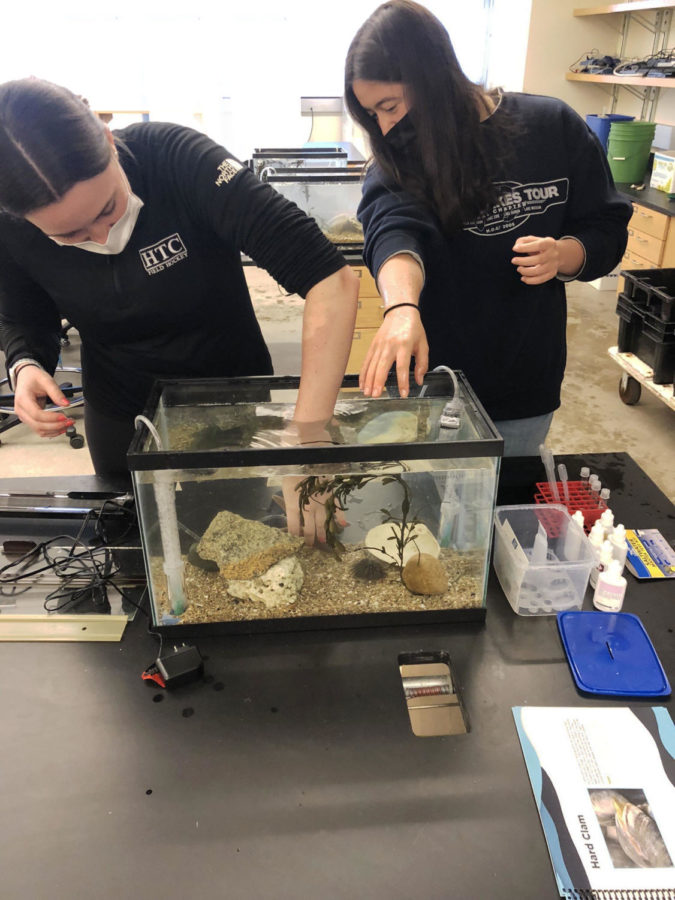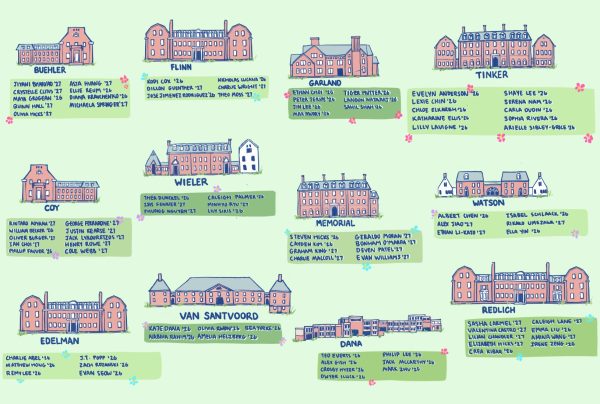In Cape Cod, Molecular Biology Research Class Works at Marine Lab
Students from BI490 at the Marine Biological Laboratory in Woods Hole, MA.
Six Senior biology students explored their inner marine scientists through a multi-day laboratory trip. From March 22 to 25, students from BI490, an Honors Molecular Biology Research, traveled to the Marine Biological Laboratory (MBL) in Woods Hole, Massachusetts, for a research trip.
As a research institute, the MBL uses marine organisms to further develop research in sectors such as conservation biology, neuroscience, and cell biology, among others. The three-day trip included a marine vertebrate and invertebrate anatomy and physiology course with Dr. Lisa Abbo, a marine biologist at the laboratory, as well as hands-on work.
BI490Y, taught by Mr. Paul Oberto P’24 ’25, focuses on molecular biology and lab research. Students work on independent projects based on a research question and learn about different lab techniques to conduct research and fi nd solutions. Many research questions investigate DNA sequencing, genetics, and their correlation to phenotypic traits.
Margo Donohue ’22 worked on a project that studied the molecular neuroscience of memory, such as the structural and functional components of working memory and its genetic infl uence. “I knew the class would offer me the fl exibility to design my own research project, and I [enjoy] working on something I have a vested interest in,” she said.
Others appreciated the individualized attention.
“The experience was fantastic,” said Carter Levine ’22. “We only had a handful of kids, so we each got incredible hands-on experience as well as one-onone instruction.”
While the trip itself wasn’t directly related to class projects, students gained the opportunity to witness research science in practice. Dr. Abbo gave instruction and guidance on how to pursue research projects in various topics of interest. Students attended lectures on the biodiversity of Woods Hole, saw organisms being cultured for advanced research, and talked to college students about their research. Donohue said, “We learned about biomedical use of horseshoe crabs, then got to (carefully) draw blood from them ourselves.”
The location of MBL also contributed to their experience. Mr. Oberto said, “The marine ecosystem in Woods Hole is uniquely diverse which allows [researchers] to support a wide array of organisms and research interests.”
Students also addressed this unique opportunity to broaden their scope in the sciences. Donohue said, “Field work is the most immersive and effective way to do research… While Hotchkiss has a plethora of in-depth, frequent opportunities for research in the Humanities (Macleish, Hersey, the LiT conference), much less emphasis is placed on the sciences. Our group agreed we would love to see Hotchkiss be more proactive in offering opportunities like this, encourage donors to help … and make them accessible to all — beyond just students in BI490.”
BI490 is open to Upperclass students who have taken a full-year high school biology course.





